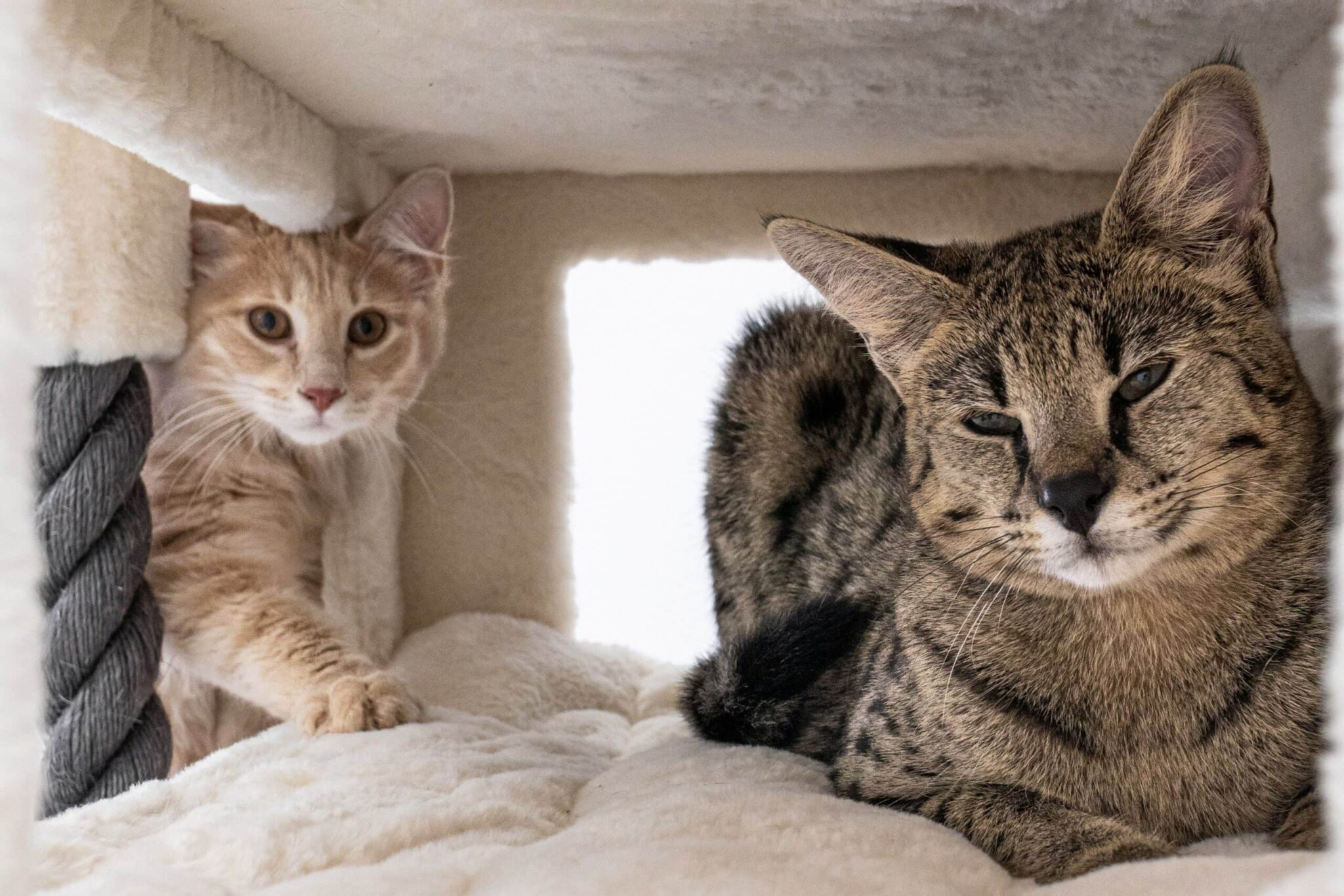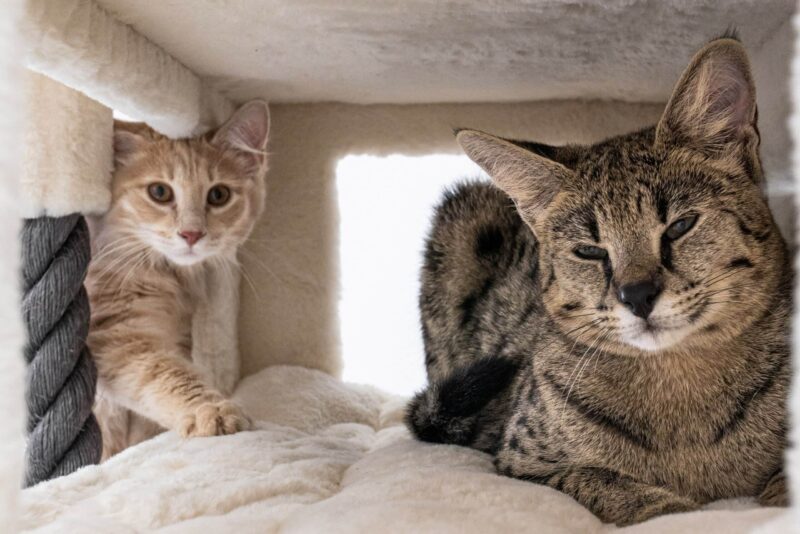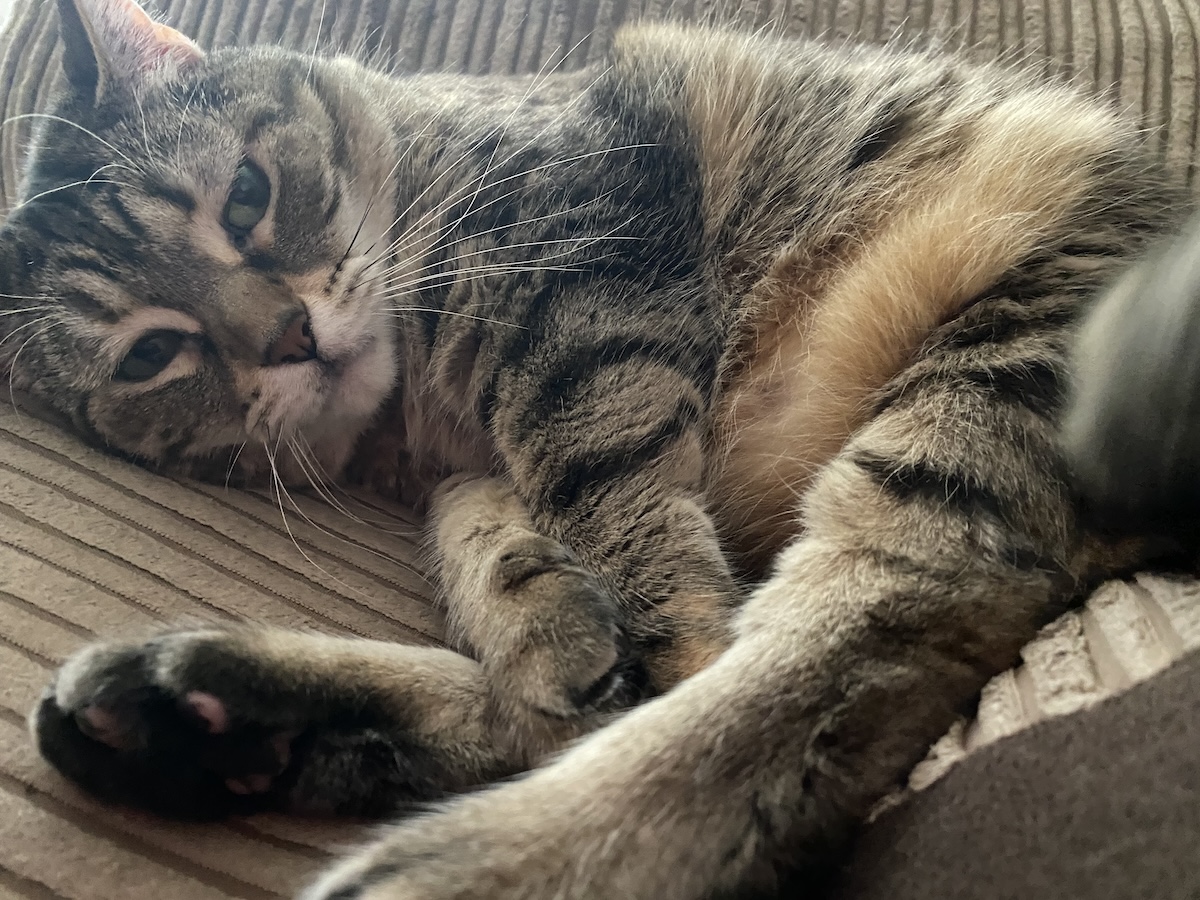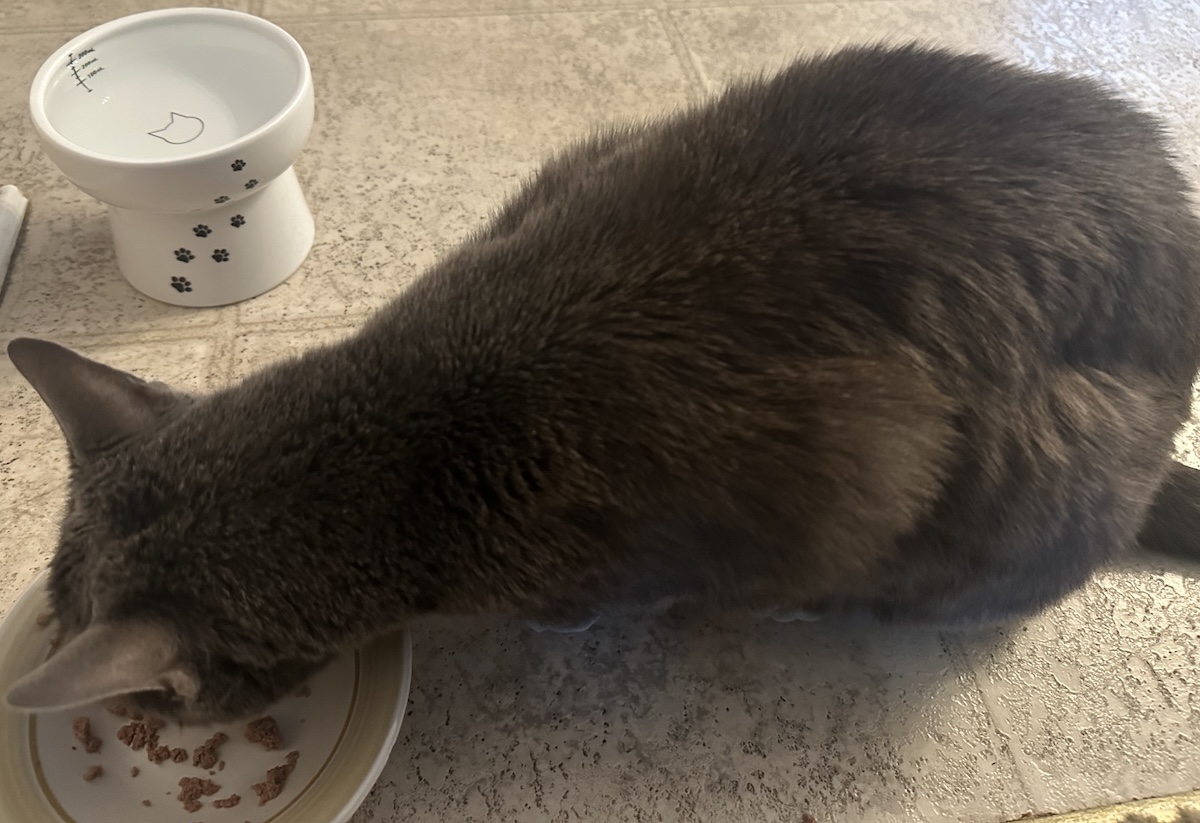The Savannah cat is one of the world’s largest and most expensive domestic pets. Savannahs have become quite popular and are known to make great pets. If you already have a cat, you may worry that the Savannah’s wild lineage will cause problems with your other feline. However, the Savannah, especially F3-F5s, get along with other cats, and some even tolerate dogs.
We’ll discuss everything you need to know about how Savannah Cats feel about other cats.
Do Savannah Cats Get Along With Other Cats?
Savannah cats are known for loving other pets in their homes, but the wilder versions of the breed can be aggressive. Their tolerance for other animals depends on their breeding. Savannahs are separated into five classes: F1, F2, F3, F4, and F5. They were initially developed by crossing Siamese cats with African Servals. However, other breeds of domestic cats are now used besides the Siamese. Different generations have various amounts of Serval genes, with F1 having the most and F5 having the least.
F1s and F2s are far more aggressive and are loners, while F4s and F5s have so little Serval DNA that they’re not considered “true Savannahs.” So, F1s and F2s aren’t as suitable to keep with other cats, while F3s through F5s are generally happy to live with other felines.
The most important thing to remember is to introduce new pets slowly. This is especially important for F1 and F2 Savannahs; due to their natural aggressiveness, they must be introduced slowly and at a young age with supervision from the owner. The other three Savannah types should also be introduced slowly, but they’re more likely to warm up to the new felines quicker than F1s and F2s.
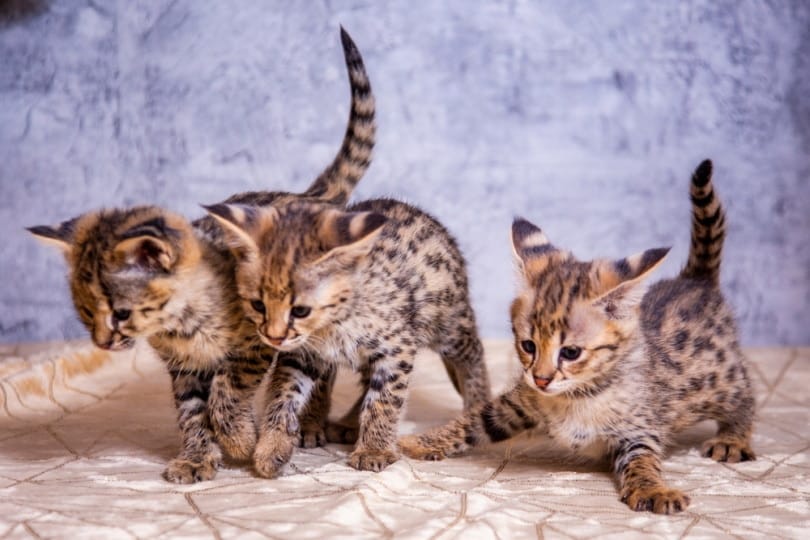
Once Your Savannah is Getting Along
It’s better for your Savannah to have another pet around. They can become destructive if they cannot release their energy with an owner or other pet. So, once you get them used to other pets, assuming the other pet likes the Savannah, they’re likely to become close friends.
Savannahs have insane amounts of energy and love playing with others, but they have so much energy that an older cat probably won’t be able to keep up. Because of their need for exercise and mental stimulation, you’ll still have to give your Savannah lots of attention.
Caring for a Savannah Cat
Savannah Cats are very dog-like felines, and teaching them basic commands is an easy task. It’s important to remember that they are more challenging to train than canines, and training them to do anything too complex will take a lot of work. Cats don’t typically enjoy being trained, but the Savannah is a slight exception. Another essential part of owning a Savanah is giving them attention.
Savannahs are very friendly and require a lot of attention. If you don’t have the time to dedicate to them, you may find yourself repairing or replacing several of your belongings. They do not have specific dietary requirements, but since they’re more active than most domestic cats, it’s best to feed them a balanced diet consisting of high-protein meals with plenty of meat protein.
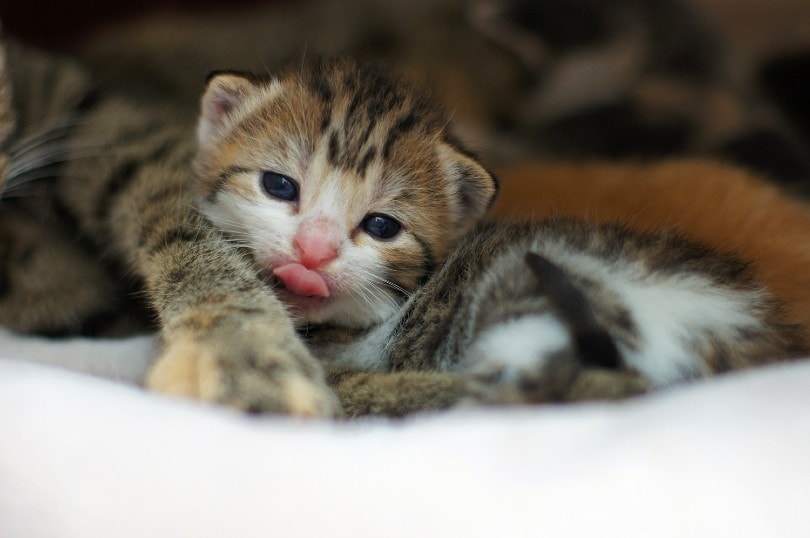

Closing Thoughts
Whether or not your Savannah gets along with new cats is very dependent on the type of Savannah you have. F1s and F2s can be more aggressive toward other cats, while the later generations (F3-F5) naturally enjoy being around other pets. It’s important to remember that you always need to introduce new pets slowly.
Even if your Savannah gets along with your other cat, that’s not enough to keep them happy. You’ll have to give them lots of attention. The F3, F4, and F5 Savannahs are dependent animals and require lots of exercise, mental stimulation, and quality time with their owners.
Featured Image Credit: Petrebels, Unsplash

